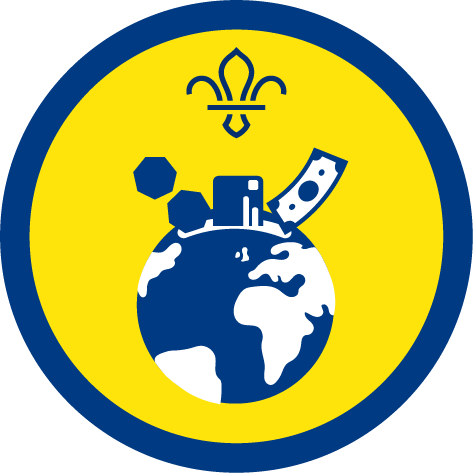
Honey makes the world go round
You’ll need
- Something to mark lines (for example, chalk, masking tape, or rope)
- Bowls
- Small items to collect (for example, bean bags or spoons)
Activity summary
In this game, everyone will become a bee and go out to collect as much nectar as they can to bring back to their hive. But bees always work together, so they’ll then play again with a new rule that emphasises sharing and looking out for others. They’ll finish off by chatting about what this looks like in real life.
Before you begin
- Use the Safety checklist to help you plan and risk assess your activity.
- Mark out a large hexagon on the floor – make it as big as possible. This is the game area.
- Gather around 30 items to be the nectar – you could use balls, bean bags, spoons, or anything else you have lots of. Spread the items out inside the hexagon.
- Place a bowl on each corner of the hexagon, these will be the beehives. Washing up bowls work well.
Step 1: Honey for your hive
- Everyone should split into six teams of bees. Each team should sit behind a beehive.
- Each team member should number themselves. If the teams aren’t quite even, one person should take two numbers.
- The person leading the activity should call out one of the numbers. The bee from each team with this number should stand up and run to collect one piece of nectar at a time to bring back to their hive.
- After around 30 seconds, or once the nectar has all run out, the person leading the game should shout ‘stop!’. All the bees should return to their hives and count how much nectar they collected.
- Someone should spread all the nectar out in the large hexagon, so the game can start again.
- Everyone should keep playing until every bee has gone out foraging at least once.
Step 2: Share the honey
- The person leading the game should explain that bees collect nectar from flowers. As they collect nectar, they also collect and spread pollen, pollinating flowers so that more flowers grow. The bees need to collect as much nectar as they can to support their hive, but if other bee colonies didn’t have enough, there wouldn’t be as many great plants and flowers. It’s in every bee’s interest to make sure all the other bees have enough to go around.
- The person leading the game should explain the new rule: every time a bee comes back with some nectar, they must check on the hive to their left. If that beehive has less nectar than their own, they should give their nectar to that beehive.
- Everyone should play again with the new rule. This time, the aim of the game is to make sure that all the beehives have enough nectar
Step 3: Chat about the challenge
Everyone should chat about the game. You could remind people that:
- Scouts make a Promise to do their best to be kind and helpful, to help other people, or to act with compassion towards all life.
- Just like the bees, we need to help and look after those around us.
- We might choose to share our time, friendship, food or money with others if we have more than we need and someone else doesn’t.
- Helping others has always been a part of Scouts. The Thrifty Man Badge from 1916 was all about saving things up and helping other people – and it had a picture of a bee on it!
Reflection
This activity was about sharing what you have with others. This is one way to think about the tax that people pay when they start earning money. Tax is where some of the money you earn goes back into building things we use every day like hospitals, pavements, and schools. This means that almost everyone contributes to the things that almost everyone uses. By paying taxes, people often help others without thinking about it or seeing the difference their money’s making.
This is what was happening in the game where you were making sure that the other team had enough nectar in their hive. There will always be people who have lots and people who don’t have as much – we’ll have to choose what we want to share. Take some time to think about why it’s important to share and help others when we can.
Safety
All activities must be safely managed. You must complete a thorough risk assessment and take appropriate steps to reduce risk. Use the safety checklist to help you plan and risk assess your activity. Always get approval for the activity, and have suitable supervision and an InTouch process.
- Active games
The game area should be free of hazards. Explain the rules of the game clearly and have a clear way to communicate that the game must stop when needed. Take a look at our guidance on running active games safely.
- Step things up by shortening the time limit or adding fewer pieces of nectar to the playing area.
- Settle things down by making the game walking-only.
- You could stop the game halfway through and ask if the groups would choose to donate some of their nectar to other hives.
You could ask someone from each hive to show how much nectar they have during the game by holding up that many fingers. All the bees in the hive could help to count the nectar.
All Scout activities should be inclusive and accessible.
How else could you practise collecting something and making sure someone else has enough, even if you don't meet them? For example, next time you're getting food ready for a camp, make sure you have enough for yourself, and enough for someone else.
Take a look at more money skills activities.
